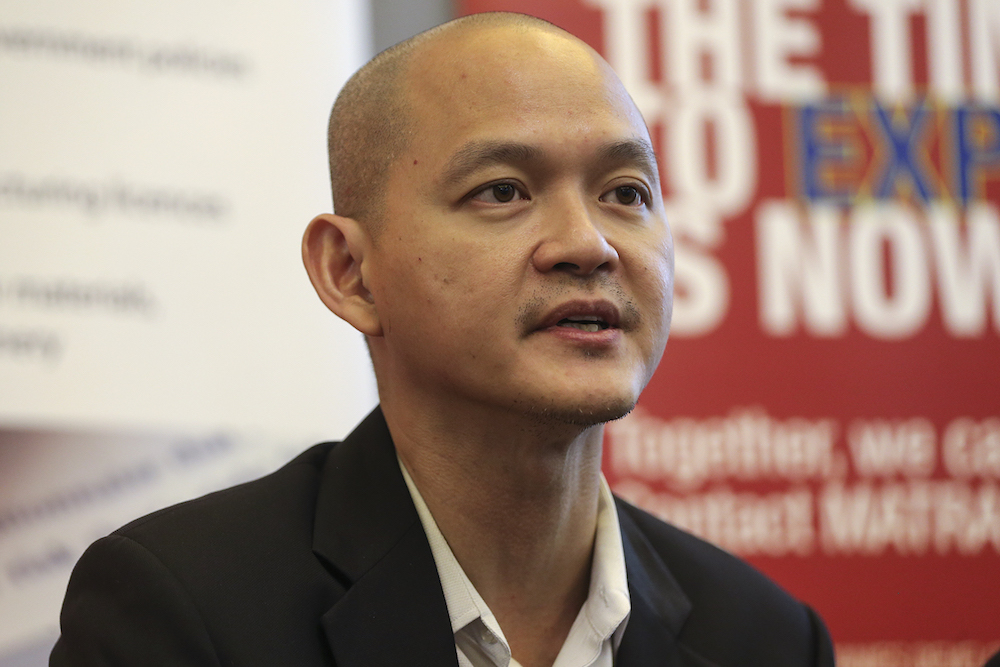KUALA LUMPUR, Feb 7 ― The battle for Malay votes will remain wide open if Pakatan Harapan (PH) can effectively communicate its policies in the face of racial tactics expected of the Umno-PAS alliance, DAP leader Ong Kian Ming said today.
Based on voting data from recent by-elections, the deputy minister and Bangi MP said PH’s Malay support fluctuated in each of the four polls held since the 14th general election, which indicated that PAS and Umno’s interparty support was not cemented.
“What is clear from the by-election results is that one cannot assume that most of PAS’s Malay support will necessarily go to Barisan Nasional (BN) in a head- to-head fight with PH,” Ong said in a statement.
“Nor can one assume that most of PAS’s support that came about from anti-BN supporters will necessarily go to PH in a head to head fight.
“The Malay vote is up for grabs and PH needs to be strategic in taking systematic steps to win over them,” he added.
Malay support increased by 12 per cent in the Malay majority state seat of Sungai Kandis in Selangor when faced with a “tainted and weak” BN-Umno candidate Datuk Lokman Adam who was closely associated with former Prime Minister Datuk Seri Najib Razak, Ong noted.
PH’s Malay support rose an estimated 35 per cent when faced with a weak BN-MCA candidate in the Chinese majority state seat of Balakong in Selangor without much campaign help from Umno and PAS.
In the mixed state seat of Seri Setia, also in Selangor, PH faced a more formidable PAS candidate who was a former state executive councillor, and experienced a fall in Malay support of 11.2 per cent.
But in the Port Dickson by-election, PH fielded prime minister-in-waiting Datuk Seri Anwar Ibrahim against a crowded field that included a PAS retired air force officer, and PH’s share of the Malay vote increased by 18.5 per cent in the by-election.
Even in the recent Cameron Highlands by-election, Ong said PH increased its Malay support by a mere one per cent when faced with a Muslim Orang Asli candidate from the BN in what was traditionally a MIC seat.
Sabah and Sarawak
PH’s defeat at Cameron Highlands had observers predicting that the ruling coalition will not be able to get enough Malay support to last beyond this term, after Umno had its share of Malay votes increased thanks to PAS support.
But Ong said while such a prediction was expected, especially that the two parties will form some sort of electoral alliance and agree to one-on-one fights against PH, there was no guarantee that the co-operation would last until the 15th general election.
He said the ruling coalition could still appeal to some of PAS core supporters by tapping on Umno’s corruption.
“There needs to be a more concerted effort to contrast PH against Umno and PAS and tie the fates of Umno together with PAS,” he said.
“Right now, PAS is trying to have its cake and eat it by working with Umno on the basis of racial and religious cooperation but not wanting to suffer the taint of being formally associated with the corrupt and kleptocratic practices of Umno.
“Whether this can last until GE15 remains to be seen especially given the accusations that PAS received financial help from Umno prior to GE14.”
Ong also predicted that Malay voter sentiment could shift once the many welfare policies targeting poorer households are fully in place. The deputy minister also said rolling out more subsidies for the Bumiputera voters in Sabah and Sarawak could consolidate PH’s support.
And with the implosion of Umno in Sabah and the dissolving of BN in Sarawak, Ong said Umno and PAS are almost bereft of any political representation and influence in East Malaysia.
“As Umno and PAS ramp up their political rhetoric and cooperation, they are also closing off any reasonable chances they have to have any political impact in East Malaysia come GE15,” he said.
PH, together with Warisan, won 24 out of 57 parliament seats in Sabah (including Labuan) in GE14. With the inclusion of additional MPs post GE14, PH now holds 28 parliament seats in Sabah and Sarawak, almost half of the total parliament seats.



















